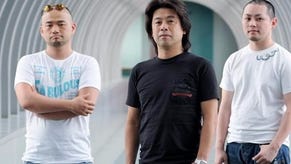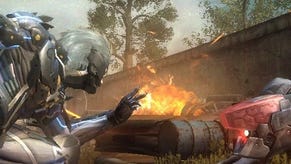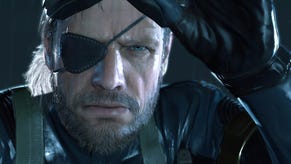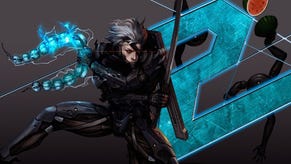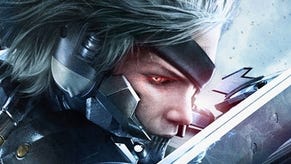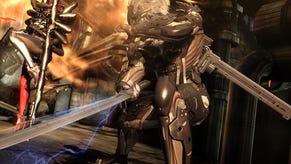Metal Gear Solid: Rising
Slicing and dicing with Kojima Productions.
It's a difficult question to answer. I can't say a particular title right now.
I've been creating games for a long time, and I do have a philosophy of what good games are and what good games are not. All games inspire me in some way. I look at many games, whether it's for the console or the coin-op, because I used to be a coin-op game designer. So anything I thought of as good game design, I try to implement in all my games.
For the people I admire, there are so many. Hideo Kojima is one of them. I'm not saying that because I'm in Kojima Productions now. I knew him for a long time. I was in the same company, but we never approached each other. I always looked up to him as a mentor. Now I have the chance to be in his Kojima Productions and work together with him. I'm deliberate not to be so close in terms of getting inspired from him. I'm trying to avoid that right now. It's a little difficult to explain.
Also, we would like to emphasise that this game is not, well, you might say hack-and-slash, but it's more than that. You would categorise it as hack-and-slash. We just want to represent a good feeling when you cut everything, like buildings and things like that. To me when you say hack-and-slash it means so brutal.
Whoa. I'm learning my English now.
Thank you. We'll use this hack-and-action.
It's not influential - maybe it's influential in a way - but what was shocking was a title like Grand Theft Auto. I never realised the freedom of any other games. You could go anywhere. You could do anything. It was fun, but at the same time I felt a fear of what the people would do and how they would react. When I saw that title I thought, as a creator, there was going to be a hell of a lot of risk involved. As I create Rising, and going back to the freedom to cut humans, I always have Grand Theft Auto and that shocking feeling in my mind.
When you ask me what kind of games I like and dislike, I've been creating arcade gun-shooting arcade machines and also racing games. Personally I like titles like Gran Turismo. That's just for my hobby.
One of the game philosophies I have is I want to recreate the feeling you get that, oh, I made a mistake. I've been doing this for over 10 years. A lot of people in the company - executives - don't like this style. For a gun-shooting game, you accidentally shoot a normal civilian. Nowadays it's normal, but in the past it was almost a taboo. I wanted to represent - not because I wanted to shoot civilians - but I wanted to make people be careful, get the feeling of, 'Oh, I made a mistake.'
I thought it was very important. But I also added a non-reward when you do that. When you shoot a civilian, your rank becomes lower from a police officer to a junior police officer. You're punished when you do that.
It's the same with Rising. I want to recreate a feeling that you made a mistake and you feel like you made a mistake, not to the extent that you're going to hate the game, but people will think, 'Okay, next time I will try to not make a mistake and I want a challenge.' That feeling is very important to a game, and I want to put that in Rising. Keeping the tension of that feeling is important as well.
So, in Rising, you might make a mistake. You might try to get just his weapon but you might cut his hand, and then you're surrounded more and you're in a more difficult position. Or, you're trying to do the zan-datsu, you're trying to cut the mechs and get the batteries out. But if you make a mistake, you can't get that item out.
I want to make people learn from their mistakes. That's one of the philosophies I have.
Metal Gear: Rising is due out on PC, PlayStation 3 and Xbox 360 in 2011.


